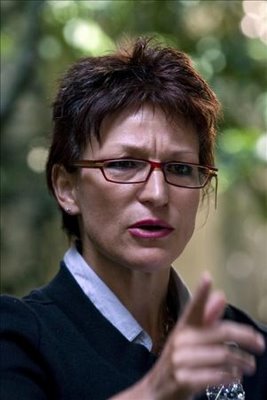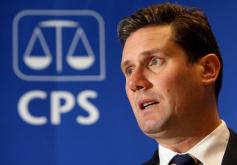London based organization ARTICLE 19 says a common sense approach to this issue is sorely needed in the UK as there have been a number of recent arrests and prosecutions over complaints about what is said in Twitter or Facebook.
Human Rights House wrote this year about a well known story of Paul Chambers’ Twitter joke. In July 2012 UK‘s high court overturned the conviction of Chambers saying that his Tweet in 2010, in which he jokingly threatened to blow up Nottingham’s airport, was not a “menacing communication”.
Criminal law as a last resort
English PEN and other campaigning groups have raised concerns that prosecutions for messages deemed ‘offensive’ are an unnecessary infringement on the right to free expression. ARTICLE 19 underlines that the criminal law should be the last resort to restrict freedom of expression, including online speech.
ARTICLE 19 states that prosecutors should not respond to the mood of the public, but to make decisions on a case-by-case basis, taking into account all the relevant factors, including the context and impact on freedom of expression.
“The right to freedom of expression, as set out in international law , protects speech that might be found by some people as upsetting or insensitive. Causing offense, […] or expressing views which people find to be in bad taste should not amount to criminal prosecution. A society that allows public debate and criticism, no matter how much that might offend sensibilities, is a healthy one,” said Agnes Callamard, right, ARTICLE’s 19 Executive Director.
, protects speech that might be found by some people as upsetting or insensitive. Causing offense, […] or expressing views which people find to be in bad taste should not amount to criminal prosecution. A society that allows public debate and criticism, no matter how much that might offend sensibilities, is a healthy one,” said Agnes Callamard, right, ARTICLE’s 19 Executive Director.
Free speech in social media should not be curtailed
The interim guidelines say that where messages include credible threats of violence, target a specific individual, or breach a court order, they should be “prosecuted robustly” by the Crown Prosecution Service.
English PEN supports the opinion of ARTICLE 19, and accents that there should be “a high threshold” for social media messages that are considered grossly offensive, in order to ensure the right to free speech is not curtailed.
The guidelines form the basis of a public consultation, to which English PEN and ARTICLE 19 will give close attention and will be actively involved in discussion.
The organizations will be also responding in full to the consultation and will continue to closely monitor how any new guidelines are implemented.
Why guidelines are needed
The UK has a bad track record for prosecuting for ‘offensive’ comments made using social media. There have been many cases where speech has led to criminal charges. We have already mentioned the Chambers’ case.
In July 2012, the Olympic diver Tom Daley received abuse via Twitter, leading to an arrest of a teenager in Plymouth. You can find more information about this case here.
In November Police arrested a man for posting a picture of himself burning a poppy on Facebook, that was accompanied with offensive text referring to the armed forces.
In October a man who posted an offensive Facebook message following the deaths of six British soldiers in Afghanistan was given a community order. Azhar Ahmed was found guilty of sending a grossly offensive communication for a message which said “all soldiers should die and go to hell.”
Also in October. Matthew Woods was jailed for 12 weeks for posting comments about missing schoolgirl April Jones on his Facebook page.
Review of law necessary
ARTICLE 19 pays attention to the fact that the guidelines go some way to addressing the issue of comments using social media, but a review of the law is necessary to provide a sustainable legal solution to criminal complaints about online speech.
International law is clear that restrictions to speech can only be made in very strict circumstances. Any restriction of free expression must be provided for by law.
This means that there must be a piece of legislation enacted by a competent body in the UK. This law must be as clear and as precise as reasonably possible, so that citizens know in advance exactly which expressions are prohibited.
Any restriction must pursue a legitimate aim. The list of aims in Article 19(3) of the International Covenant on Civil and Political Rights (ICCPR) is exclusive and includes:
– Respect of the rights or reputations of others;
– Protection of national security, public order, or of public health or morals.
The restriction must be necessary in order to secure one of these aims. The impact of the restriction must also be proportionate. The harm to freedom of expression must not be greater than the benefit to the interest which is being protected.
Related articles:
UK: Absurd conviction for Twitter joke overturned
UN: online expression must remain free of censorship
ARTICLE 19 encourages not to change ITRs and leave internet free
Campaign’s success in UK: Libel reform announced
60 international NGOs urge British government to strenthen libel law reforms





